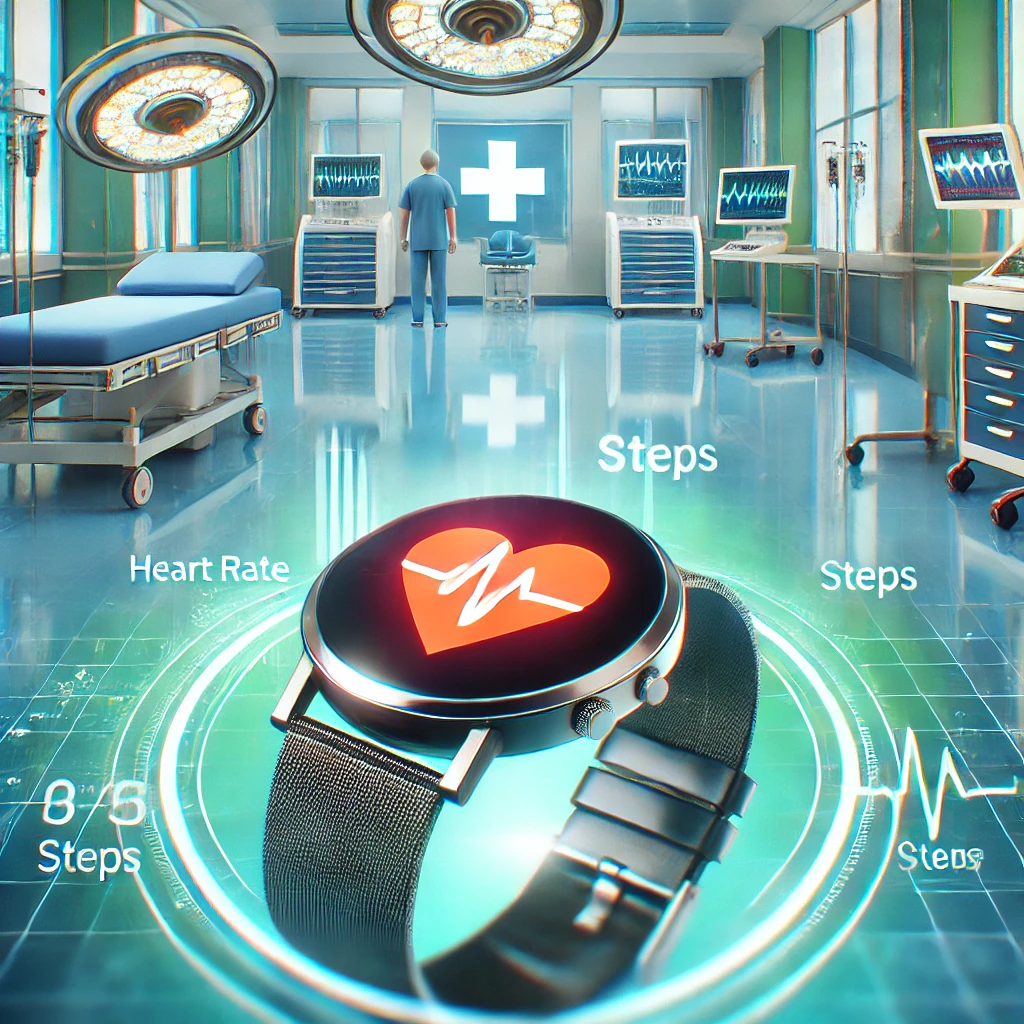
Transforming Healthcare: The Impact of Wearable Technology on Modern Health Monitoring
Modern Health Monitoring : What is Wearable Technology in Healthcare? Wearable technology refers to electronic devices designed to be worn on the body, enabling continuous monitoring of various health metrics. These devices include:
- Fitness Trackers: Monitor daily activities such as steps, calories burned, and sleep patterns.

- Smartwatches: Provide heart rate monitoring, oxygen saturation levels, and even ECG capabilities.
- Medical Wearables: Devices like continuous glucose monitors (CGMs), blood pressure monitors, and wearable ECG monitors designed for specific medical conditions.
The Benefits of Wearable Technology in Healthcare
- Early Detection and Prevention: Wearable devices allow real-time tracking of vital signs, helping to detect anomalies early. For instance, a smartwatch’s ECG feature can identify irregular heart rhythms, potentially preventing serious cardiac events.
- Chronic Disease Management: Devices like CGMs empower diabetic patients to monitor their glucose levels continuously. Similarly, wearables for hypertension provide instant blood pressure readings, helping patients manage their condition effectively.
- Enhanced Patient Engagement: Wearables encourage individuals to take charge of their health by providing actionable insights and daily activity goals.
- Remote Patient Monitoring: Healthcare providers can remotely monitor patients, reducing the need for frequent hospital visits and improving care for those in rural areas.
- Cost Reduction: By enabling preventive care and reducing hospital readmissions, wearable tech can significantly cut healthcare costs.
Challenges and Concerns
Modern Health Monitoring : Despite its benefits, wearable technology in healthcare faces several challenges:
- Data Privacy and Security: With continuous data collection, ensuring patient privacy and protecting sensitive health data is critical.

- Accuracy: Not all wearable devices provide clinical-grade accuracy, which can lead to misinterpretations.
- Accessibility: The cost of advanced wearable devices may limit their accessibility to low-income populations.
- Integration with Healthcare Systems: Seamless integration of wearable data into electronic health records (EHRs) remains a challenge.

Future Trends in Wearable Healthcare Technology
- AI-Powered Insights: The integration of artificial intelligence will enhance the predictive capabilities of wearables, offering personalized health recommendations.
- Advanced Sensors: Future devices may include sensors for hydration levels, stress detection, and even biomarkers for diseases like cancer.
- Wearable Therapeutics: Beyond monitoring, wearables may deliver therapies, such as pain management through electrical stimulation or drug delivery.
- Improved Battery Life and Design: Innovations will focus on making devices more comfortable, stylish, and energy-efficient.
- Healthcare Gamification: Wearables will increasingly adopt gamified elements to motivate users to maintain healthy lifestyles.



 DailyMediCure
DailyMediCure 









